Share
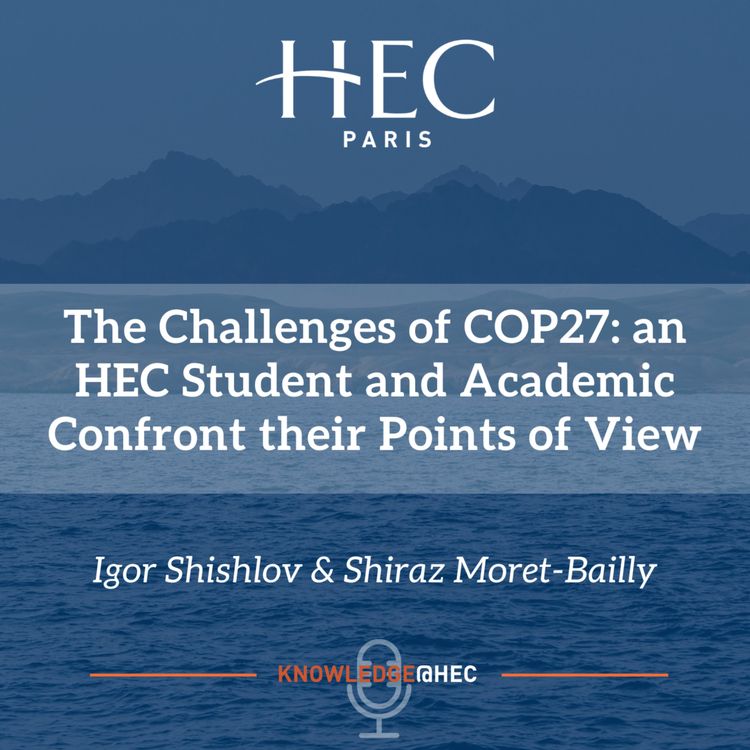
BREAKTHROUGHS
As COP27 Gears Up, an HEC Student and an Academic Confront Points of View
•
The COP27 summit begins on November 6 in Sharm al Sheikh, Egypt, exactly a year after COP26 in Glasgow. A year is a long time and challenges have piled up: a world divided by war in Europe, where the world sees an acceleration of climate changes and global warming has beaten all modern records. In this light, Knowledge@HEC discusses the 12-day summit’s agenda and objectives with two guests: Igor Shishlov, Academic Co-Director for HEC’s Climate & Business Certificate; and Shiraz Moret-Bailly, co-president of Esp’R, an HEC student association devoted to sustainability and social economy.
Read more on Knowledge@HEC
More episodes
View all episodes
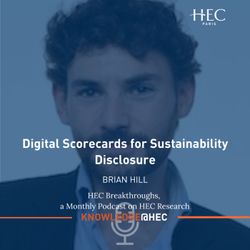
Digital Scorecards for Sustainability Disclosure
45:26|A bumper christmas edition of Breakthrough featuring Brian Hill. He's Research Director at the CNRS and HEC Professor in the Economics and Decision Sciences Department. Brian discusses his new policy paper which shifts the focus of disclosure rules from companies to products - in the name of sustainability. A timely exchange, coming as it does as Europe reaches a provisional agreement to simplify sustainability reporting and due diligence requirements. Could Brian's digital, standardized scorecard be the key to filling in information and data gaps in this drive for smart product-level disclosure Europe should be aiming for?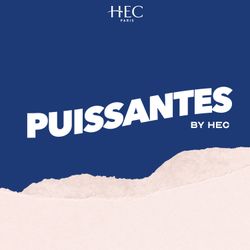
PUISSANTES by HEC - Rendez-vous en janvier
01:40|Puissantes by HEC est un podcast qui révèle des entrepreneuses qui ont bâti leur propre voie. Elles transforment une idée, un désir ou un manque en un projet qui leur ressemble profondément et racontent leur parcours, leur détermination et le déclic qui les a poussées à franchir le pas, jusqu'à la fierté d'être devenues des entrepreneures. Ce podcast est porté par HEC Stand Up, le programme qui accompagne les femmes qui souhaitent se lancer dans l’entrepreneuriat, qu’importe leur âge, leur parcours, ou leur horizon social.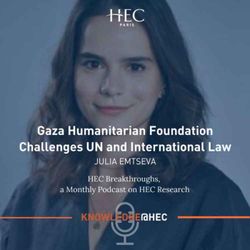
SHORT BREAKTHROUGHS: Gaza Humanitarian Foundation Challenges UN Bodies and International Law
11:52|SHORT BREAKTHROUGHS: Gaza Humanitarian Foundation Challenges UN Bodies and International LawWhile the GHF has closed its doors, could its controversial approach to humanitarian aid be a blueprint for the administrating of Gaza? Law academic Julia Emtseva analyzes this US-Israel initiative and its possible implications for a territory shattered by violence and famine. This is a condensed version of the Breakthroughs first broadcast on November 25.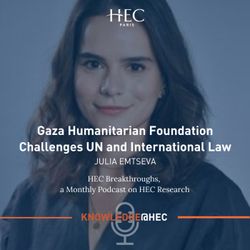
Private Gaza Humanitarian Foundation Challenges UN Bodies and International Law
39:38|When the Gaza Humanitarian Foundation (the GHF) began operating in late May 2025, much public debate centered on its immediate humanitarian record: the shootings, the chaos near distribution sites, the opaque role of private security companies. But what of the GHF’s impact on international law and conventions, core obligations of an occupying power and very notion of politicizing humanitarian aid? HEC Assistant Professor of Law Julia Emtseva explores these issues as part of her research into private actors in international law and transitional justice. We also hear the opinions of HEC students on these questions.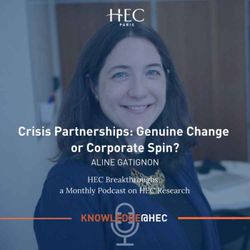
SHORT BREAKTHROUGHS: Crisis Partnerships: Genuine Change or Corporate Spin?
10:10|Short of time? Here's an abridged version of the Breakthroughs podcast exchange with HEC strategy professor Aline Gatignon. Her research focuses on the ripple effect of corruption, tracking how scandals reshape cross-sector partnerships between nonprofits and multinationals. The lessons are urgent for any leader whose organization touches public trust, whether in emerging markets or in Western capitals. Often, multinationals turn to nonprofits in times of crisis, funding environmental or social causes to show they’re part of the solution. But are these partnerships real, or just spin? Hear more from Aline as she gives advice to both parties on how to work together. Her research is a story about power, legitimacy, and the resilience of civil society.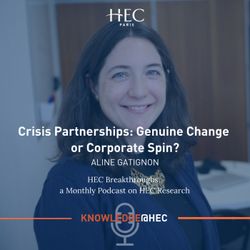
Crisis Partnerships: Genuine Change or Corporate Spin?
29:38|When a corporate scandal explodes, like Volkswagen’s Dieselgate or BP’s oil spill, companies scramble to save their reputations. Often, they turn to nonprofits, funding environmental or social causes to show they’re part of the solution. But are these partnerships real, or just spin? Strategy professor Aline Gatignon suggests answers. Her new study uncovers how crises change the way corporations and nonprofits work together - and how nonprofits sometimes resist being used as PR cover. Her research is a story about power, legitimacy, and the resilience of civil society.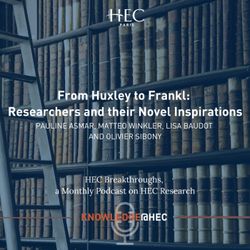
From Huxley to Frankl: Research Academics Pinpoint Their Novel Inspirations
24:15|HEC academics Pauline Asmar, Matteo Winkler, Lisa Baudot and Olivier Sibony share with Breakthroughs the books which sustained or transformed their approach to research. For, as the 19th century Scottish philosopher Thomas Carlyle once said: "What we become depends on what we read after all of the professors have finished with us. The greatest university of all is a collection of books." These books are now available in HEC's Learning Center, thanks to the efforts of Elise Thomas: Livres recommandés par nos professeurs-chercheurs - Groupe HEC. Click on this link: https://podcasts.apple.com/fr/podcast/from-huxley-to-frankl-research-academics-pinpoint-their/id1524786528?i=1000723447474.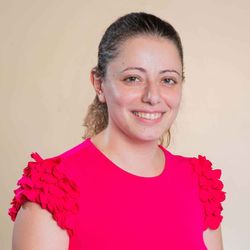
SHORT LISTEN: Not Just Parrots: How Middle Managers Communicate Purpose
37:14|Why should employees articulate your company’s purpose - and not just the firm’s CEO? In this SHORT LISTEN Breakthroughs speaks with Pauline Asmar, a doctoral researcher at HEC Paris, whose groundbreaking work reframes how purpose actually works inside companies. Drawing on data from nearly 60,000 employees across 469 firms, Asmar reveals that it's the middle managers who translate abstract mission statements into daily motivation - not the top brass. We discuss why this “purpose dialogue” at management/worker level is emerging as a vital new lever for team commitment, how companies can fail despite having purpose statements, and what happens when leaders just parrot slogans instead of listening. Plus, how purpose-washing creates skepticism, and what can be done about it. For the full version, go to https://shows.acast.com/knowledgehec/episodes/not-just-parrots-how-middle-managers-bring-purpose-to-life.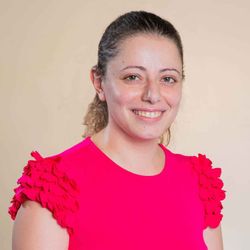
Not Just Parrots: How Middle Managers Bring Purpose to Life
34:01|Why should employees articulate your company’s purpose - and not just the firm’s CEO? In this episode of Breakthroughs, we speak with Pauline Asmar, a doctoral researcher at HEC Paris, whose work reframes how purpose works inside companies, at the level of the teams. The research is co-authored by HEC Professor and Purpose Chair director Rodolphe Durand. Drawing on data from nearly 60,000 employees across 469 firms, Asmar reveals that it's the everyday managers who translate abstract purpose statements by the top brass into daily motivation. We discuss why this “purpose dialogue” at management/worker level is emerging as a vital new lever of team commitment, how companies can fail despite having purpose statements, and what happens when leaders just parrot slogans instead of listening and engaging. We also discuss how purpose-washing creates skepticism, and what can be done about it.